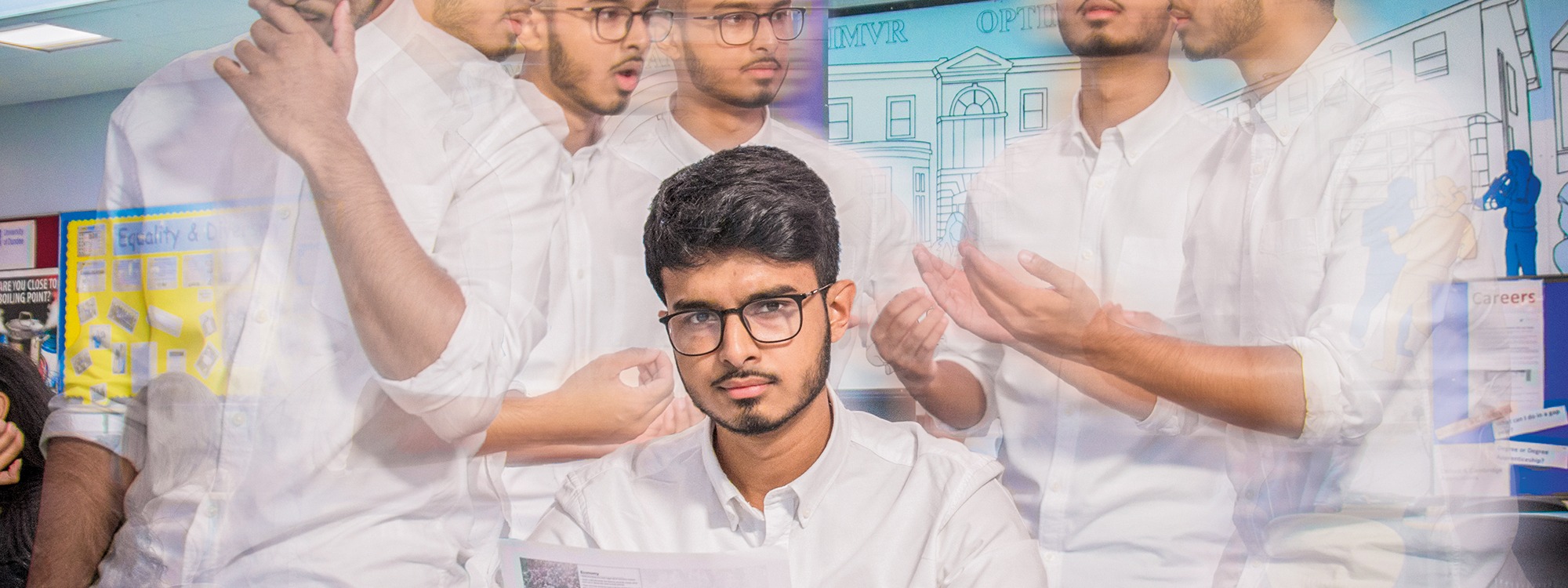- Home
- Curriculum
- A Level Subjects
- Politics
Politics
Why study Politics?
Studying Politics helps you understand the world around you; how governments work, how decisions are made, and how those decisions affect everyday life.
It encourages you to engage in debate, which not only sharpens your critical thinking but also develops your ability to speak clearly and confidently, listen to and counter others.
Politics also gives you the tools to have meaningful conversations with a wide range of people about important issues, helping you become more informed and involved in society. Why is populism growing in the western world? Why is the UN unable to solve humanitarian abuses? Why is American culture so prevalent? Why do MPs all shout and scream in Parliament?
Finally, it prepares you for university by developing your academic writing skills through essay-based learning.
Course overview
There are three papers: UK Politics & Core Ideologies, UK Government and Non-Core Ideologies and Global Politics
Topics include:
| Paper 1 | Paper 2 | Paper 3 |
|---|---|---|
| Democracy & Participation | Constitution | Theories of International Relations |
| Political Parties | Parliament | Globalisation |
| Electoral Systems | Prime Minister & Cabinet | Political and Economic Governance |
| Voting Behaviour & the Media | Supreme Court | Human Rights and Environmental Governance |
| Anarchism | Global Power | |
| Regionalism |
How is the course assessed?
- There are three papers, each paper lasts 2 hours and is worth 84 marks.
- Everything is essay based.
- The three AOs are 1. Knowledge 2. Analysis 3. Evaluation
- You are asked to construct a two sided argument that shows in depth knowledge of political institutions and events.
- You are also asked to evaluate throughout to produce a convincing argument.
What will I do in lessons?
You will do group work, undertake research projects, identify arguments, debate and discuss.
What Independent study will be expected?
You will be expected to do 5 hours outside of the classroom, this will include wider reading, listening to podcasts, watching documentaries and also completing essay plans.
Exam Board
Edexcel
Link to specification
GCSE Entry Requirements
- 5 in Mathematics required
- 6 in English Language required
- 6 in History or Geography required
- 6 in English Literature required if History or Geography not taken at GCSE
What A Levels go well with this one?
Politics goes well with many A levels. We have students who undertake politics with their other A levels being STEM subjects as they want to engage in debate and discussion.
Politics ties nicely in with most Humanities and Social Sciences such as History, Law, Sociology, Philosophy, Economics and Geography, but also subjects like English Literature.
There is a lot of crossover between those subjects and Politics.
What can I do beyond A Levels with this subject?
Many of our students go on to do International Relations at university, but it can also lead to others such as PPE at Oxford or HSPS at Cambridge.
Students really interested in Politics often find themselves on the Civil Services’ Fast Track programme after their degree. Some engage in local politics and others go into the legal system or journalism.
Frequently asked questions
Which option for Paper 3 do you do at Woodhouse?
Unlike the vast majority of centres, we do not do American politics. Instead, we do the Global option. The reason for this is that many of our students go on to do IR at university and so it is a good stepping stone.
Why did you choose anarchism?
We chose it because it is such a fascinating ideology that really leads to critical thinking and has significant debate surrounding it. Secondly, we feel it an area that students will almost never cover in any other subject unlike other options such as feminism, nationalism and ecologism. Finally, it has nice links to socialism which is a compulsory module.
Will I be expected to do a lot of writing?
Yes! This is an essay-based subject. We write a lot. 85% of marks are big essay questions worth 30 marks. 10% are 24 mark essays and 5% are smaller 12-mark essays. So, you will write a lot. However, not all lessons are just about writing, we really want to focus on the debates that are so prevalent within the subject.
Is everything just from a liberal point of view?
Absolutely not, the most important thing that we want to do is develop your political awareness to help you make an informed decision. We do not promote a particular party or ideology. Students are free to express themselves politely and engage in meaningful discussion with those they disagree with in an academic way.
